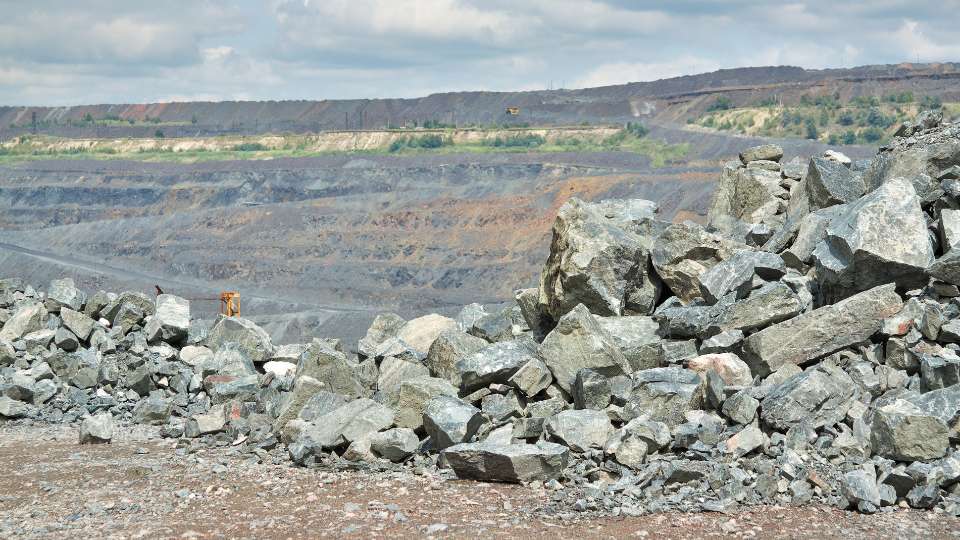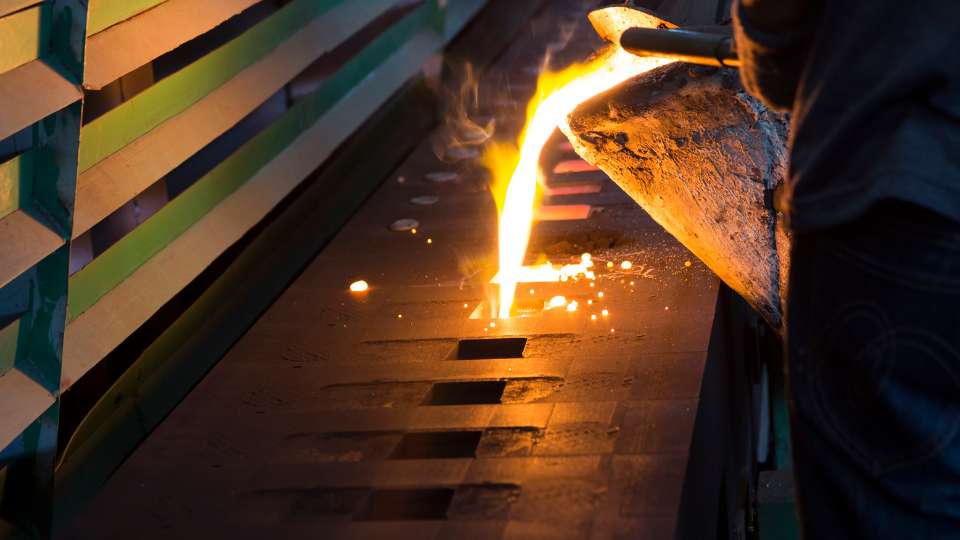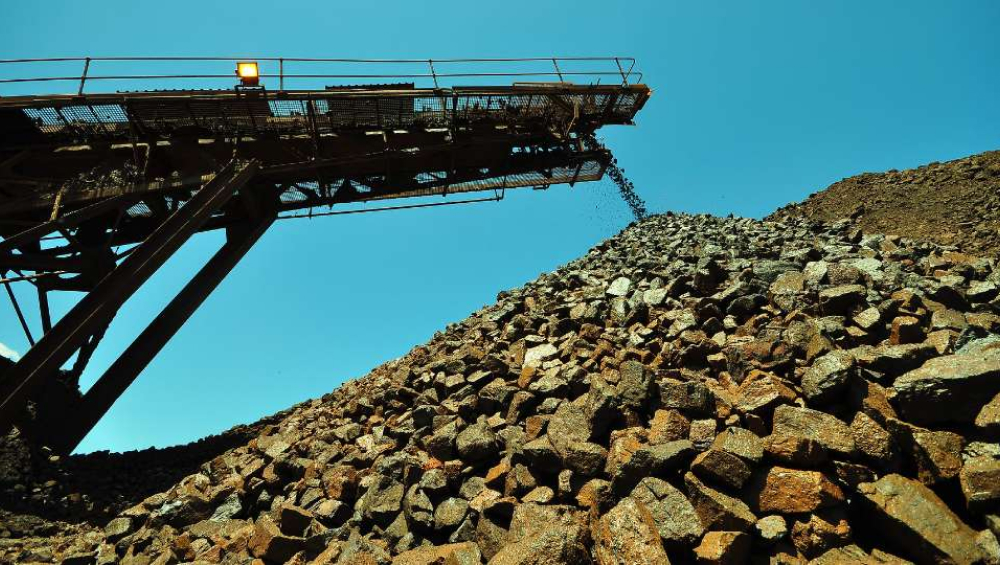About Iron Ore
Iron ore is a vital raw material in the steel-making industry. Mined from various deposits across the world, iron ore serves as a fundamental ingredient in the production of steel. This versatile material finds extensive use in multiple sectors, including construction, infrastructure, manufacturing, and transportation.
As one of the most widely traded commodities, iron ore plays a pivotal role in shaping industrial and economic landscapes worldwide. This article delves into the key aspects of iron ore futures from Dalian Commodity Exchange (DCE), including its futures contracts, supply and demand, and price.
Click to learn more about the 5 Things You Need To Know About Iron Ore Futures Trading and also the Iron Ore Market News for 2022 & 2023.

Exchanges to Trade Iron Ore Futures
Traders can trade Iron Ore Futures through Orient Futures International Singapore from two main exchanges.
The first is through Singapore Exchange (SGX), where traders can trade multiple types of Chinese iron ore futures in contract sizes of either 100 or 500 metric tonnes across various iron purity grades from 58% to 65%.
The second is through Chinese Dalian Commodity Exchange (DCE). It is the world’s biggest iron ore derivative market. Iron ore futures contracts here are in lots of 100 metric tonnes and physical delivery can be taken.
DCE Iron Ore Futures Contracts
DCE offers Dalian iron ore futures contracts for traders to hedge against price fluctuations and manage risk associated with iron ore price volatility. The contracts represent standardized agreements to buy or sell a specified quantity of iron ore at a predetermined price and delivery date in the future.
With China being a major player in the iron ore market, DCE Iron Ore Futures Contracts hold significant influence over global iron ore prices and are closely watched by traders and industry stakeholders alike.
To trade China Iron Ore Futures Contracts from DCE, foreign investors and traders would require an overseas intermediary like Orient Futures Singapore. This can be done either through the QFI China Scheme or Internationalized Products. Orient Futures Singapore is a broker Singapore company, and an indirect subsidiary of Shanghai Orient Futures.
This applies for other commodity futures contracts in other Chinese exchanges such as Rapeseed Meal Futures, Peanut Kernel Futures and PTA Futures from Zhengzhou Commodity Exchange (ZCE), and Crude Palm Oil Futures, Gold Perpetual Futures from Asia Pacific Exchange (APEX).
DCE Iron Ore Futures Contract Specifications
The DCE Iron Ore Futures Contract has the following specifications:
The DCE Iron Ore Contract has a minimum tick size of of 0.5 CNY/MT.
Contract months are monthly all year round.
The last trading day of the contract month is the 10th trading day of the contract month.
Dalian Commodity Exchange trading hours are from Monday to Friday, at these trading hours:
9:00 am – 11:30 am 1:30 pm – 3:00 pm (Beijing time)
DCE Iron Futures Contracts symbol: I
Why Trade in DCE Iron Ore Futures?
Iron ore is a critical commodity in the global economy, as it is the primary raw material for steel production. Steel is used in various industries, including construction, automotive, infrastructure, and manufacturing. As a result, iron ore plays a vital role in economic development and industrial growth.
While iron ore is a global commodity with countries such as Australia and Brazil contributing to its supply and demand, China is one country that heavily affects iron ore prices.
China might be only the 3rd largest producer of iron ore but China’s rapid modernisation and construction growth has seen it emerge as one of the world’s largest consumer and importer of iron ore. According to Statista, China’s iron ore import amounted to over 70% of global iron ore imports in 2021.
With China reopening its economy and taking measures to repair its property market, DCE exchange Iron Ore futures have gained particular relevance. These futures contracts are denominated in Chinese Yuan (CNY) and provide valuable insights into the supply-demand dynamics in the Chinese market, which has a significant impact on global iron ore prices.

Iron Ore Supply and Demand
According to the Orient Futures Ferrous Metals Chain Data Weekly Report Dated 30072023, molten iron production output has rapidly dropped to 2.4 million tons. The decline in production was primarily attributed to the Hebei Environmental Protection Production Restriction. The restriction is aimed at limiting industrial output to protect the environment and enhance air quality. It was not directly caused by the production control policies.
Based on the plans released by some provinces, the production control policies will also be implemented monthly starting August, to December. If the production control policies are strictly enforced, this would lead to a disruptive transformation in the iron ore supply-demand balance for the rest of the year.
Based on calculations from crude steel and molten iron production data from January to July, if the production control policies are strictly enforced, molten iron output from August to December could be below 2.2 million tons per day. Since Iron ore is used to produce molten iron, the decrease in molten iron production could result in a surplus in iron ore inventory. It could accumulate up to 20-30 million tons by the end of the year.
DCE Iron Ore Futures Prices
According to Barchart, DCE Iron Ore Futures Contracts are priced at 835.5 CNY per tonne, as of 23rd August 2023..
With the implementation of production control policies, iron ore prices experienced a significant decline. As the specific details of the policies have not been finalized, traders are proactively hedging to avoid risks, leading to early declines in prices.
Future of Iron Ore Futures Market Outlook
Due to the uncertainties of the production control policies guidelines, there is differentiation among the different contracts in terms of performance. Near-month contracts are weaker, while contracts beyond 2024 are expected to have a stronger performance.
Considering the current relatively balanced supply and demand situation in both steel and iron ore, the market outlook for next year remains optimistic. As the policies are implemented, the performance of stronger far-month contracts and weaker near-month contracts is likely to continue.
The short-term policy risks have not been fully realized yet, so there may be continued downside risks for near-month contracts. However, far-month contracts are relatively more optimistic.
More attention needs to be placed on how the production control policies will be executed in the later stages.
Start Trading With Orient Futures Singapore
Being an Overseas Intermediary of Shanghai International Energy Exchange (INE), Dalian Commodity Exchange (DCE), and Zhengzhou Commodity Exchange (ZCE), when foreign clients participate in internationalised futures contracts in these Chinese markets with us, they have direct access to trading, clearing, and settlement. Our parent company, Shanghai Orient Futures, is the largest broker in terms of aggregated volume across the five regulated exchanges in China.
Orient Futures Singapore also currently holds memberships at the Singapore Exchange (SGX), Asia Pacific Exchange (APEX), and ICE Futures Singapore (ICE SG).
We provide premium customer service at an affordable cost to all our clients. Our team will be there for you 24 hours on trading days to provide a one-stop portal for all your trades, with simple processes and an intuitive user interface that has low or near-to-zero latency.



